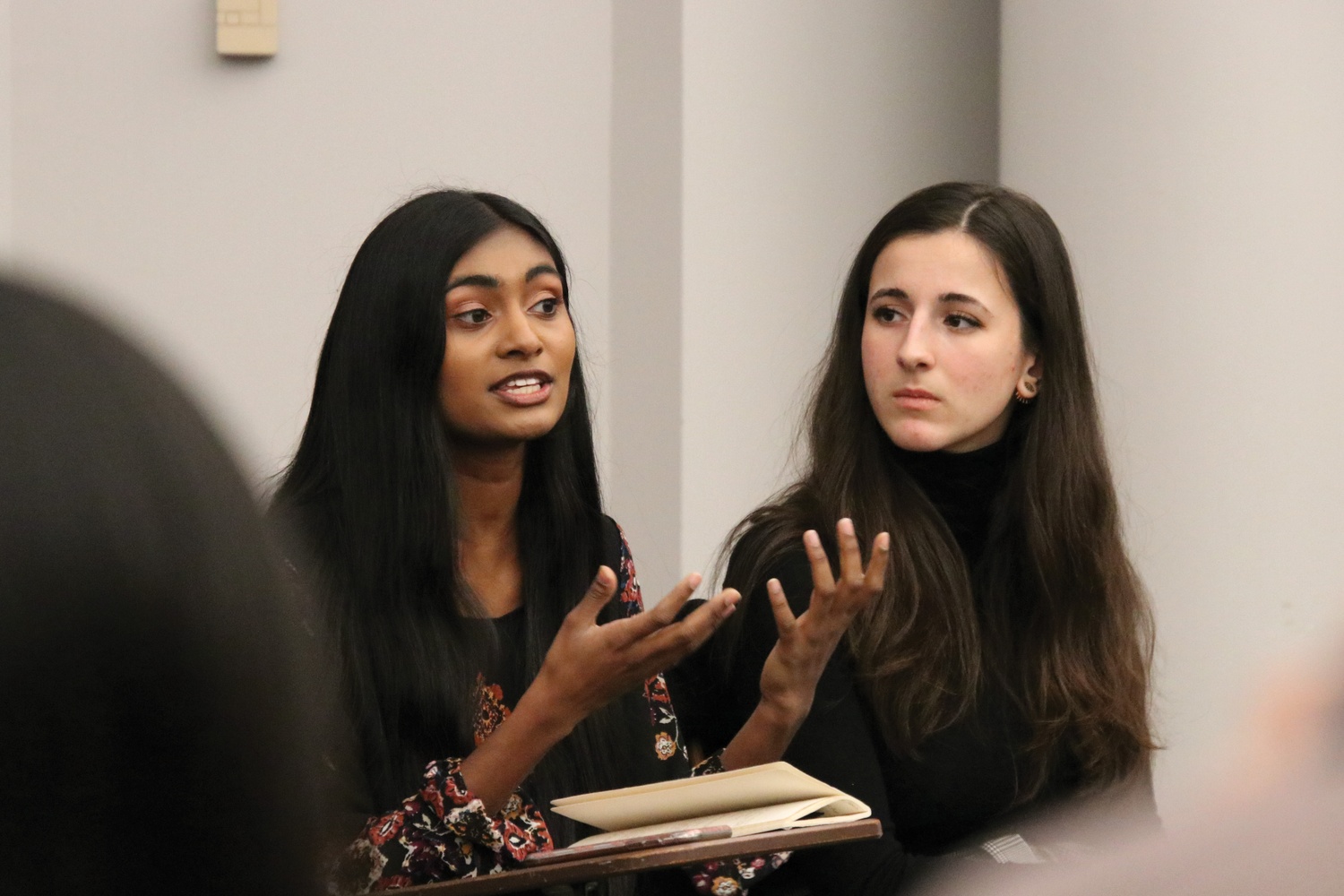
News
Summers Will Not Finish Semester of Teaching as Harvard Investigates Epstein Ties

News
Harvard College Students Report Favoring Divestment from Israel in HUA Survey

News
‘He Should Resign’: Harvard Undergrads Take Hard Line Against Summers Over Epstein Scandal

News
Harvard To Launch New Investigation Into Epstein’s Ties to Summers, Other University Affiliates

News
Harvard Students To Vote on Divestment From Israel in Inaugural HUA Election Survey
UC President Wants Class-Wide Programming for Sophomores and Juniors to be a 'Priority'

Roughly a year after students overwhelmingly voted in favor of an Undergraduate Council referendum asking whether the College should fund class-wide programming events for sophomores and juniors, UC leaders — backed by administrators — have embarked on a concerted push to make the students’ desire a reality.
In the past few years, class-wide events for sophomores and juniors have occurred infrequently, and the issue did not feature prominently in the recent Council presidential election. Nonetheless, new UC President Sruthi Palaniappan ’20 said Monday that “institutionalizing” sophomore and junior class events will be an early “priority” as she begins her tenure.
Last month, the UC collaborated with the Dean of Students Office, the Advising Programs Office, and the Harvard Coop to organize a sophomore declaration event in Annenberg Hall, after zero class-wide events for sophomores took place in 2017. Multiple attendees praised the event — which drew hundreds of students — for giving them the opportunity to see friends from freshman year.
Class-wide programming for juniors has been even more sporadic. The only event for the junior class in recent years came in 2017. That event, meant as an opportunity for reflection, only drew a few dozen students.
Former Council President Catherine L. Zhang ’19 said in an interview Sunday she believes the decentralized nature of the upperclassmen house system can at times hinder potential interactions between students.
“Being able to have events and programming that brings the entire class together I think is so special,” she said. “I’ve seen how much it means to students and how much there currently lacks in terms of spaces where all of the class can come together, not separated into houses, not separated into academic communities, not separated into organizations.”
The Council’s constitution requires that the body publish a policy paper about any referendum supported by a majority of voters, in order to outline how the UC would work to implement the proposal. The policy paper about class-wide programming, written by Zhang and released last week, cites a survey conducted by the University’s Task Force on Inclusion and Belonging — which published its official report in March 2018 — showing that students felt a decreased sense of belonging during their sophomore and junior years.
“The policy paper that was put together I think gives us a really good frame as to how we should approach class-wide programming and which offices we should also be collaborating with in order to best support these events in the future and make sure that they will continue regularly,” Palaniappan said.
She added that she would be willing to use Council money to fund class-wide events, but would like to see the College administration eventually take on more of the financial burden for these events.
A key component of the Council’s plan will be establishing sophomore and junior class committees, likely similar in makeup to committees already in place for freshman and seniors, according to Palaniappan. The sophomore and junior committees would likely be composed of former members of the first-year class committee, the College Events Board, and the UC, as well as other interested students, Palaniappan said.
The policy paper notes that many peer institutions, including Yale, the University of Pennsylvania, and Cornell, already have such committees in place for each class year.
“All of these different universities have mentioned how integral these committees have been to their campus, in terms of creating a sense of inclusion and belonging,” Zhang wrote.
The administration appears to at least broadly support the students’ demands. The DSO conducted two focus groups in recent weeks — one with tutors and another with undergraduates — to gather information about the “sophomore and junior experience,” according to Katie Steele, senior director of student engagement and leadership.
“I think hearing more about the current student experience, will help us to figure out how we can improve and enhance supports in the future,” Steele wrote in an email.
— Staff writer Jonah S. Berger can be reached at jonah.berger@thecrimson.com. Follow him on Twitter @jonahberger98.
Want to keep up with breaking news? Subscribe to our email newsletter.
